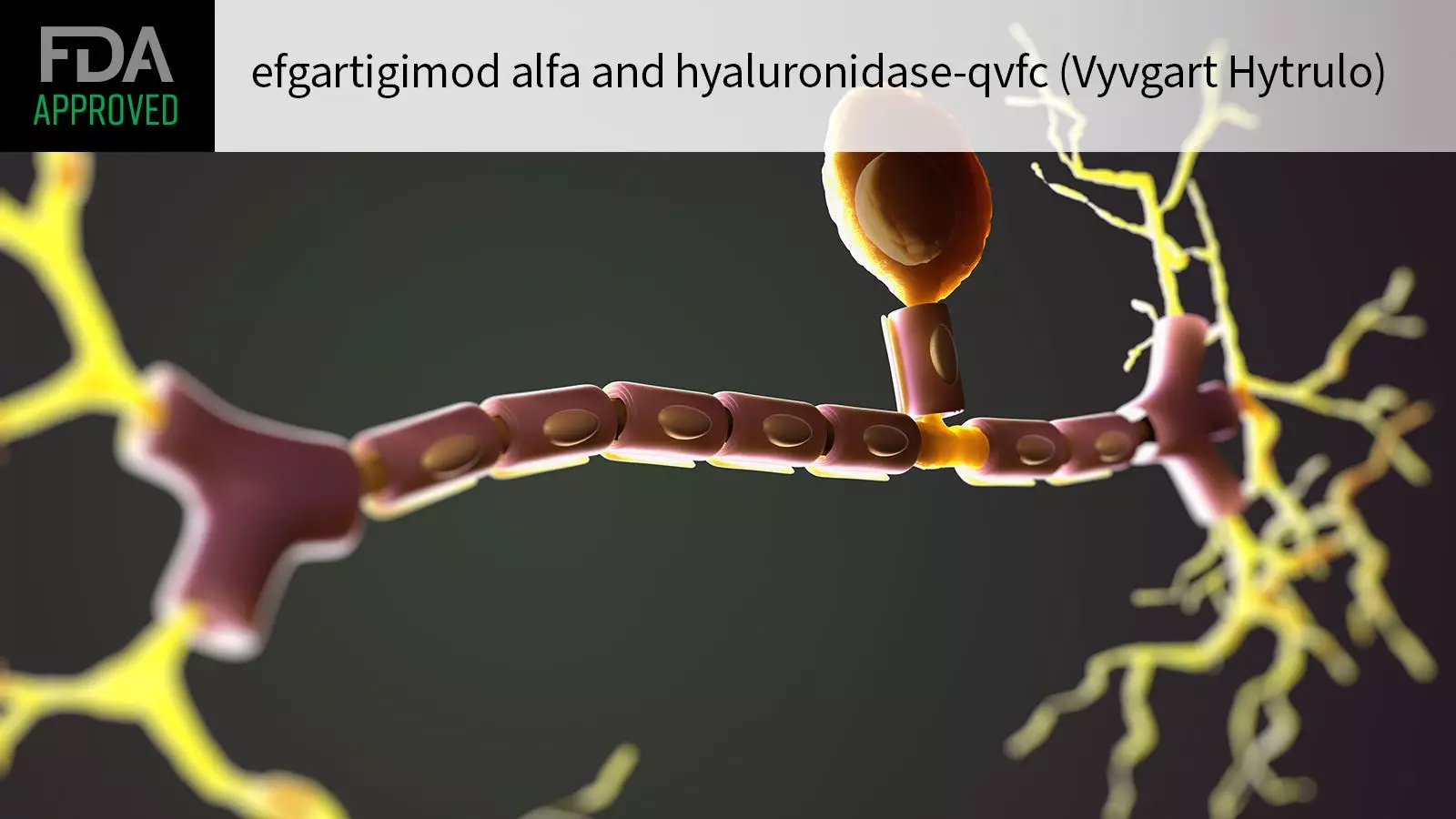The recent expansion of the FDA indication for efgartigimod alfa and hyaluronidase-qvfc (Vyvgart Hytrulo) to include treatment for adults with chronic inflammatory demyelinating polyneuropathy (CIDP) has been hailed as a groundbreaking development in the field. Dr. Jeffrey Allen from the University of Minnesota described the FDA’s decision as a significant milestone in the treatment of CIDP, a rare and debilitating immune-mediated neuromuscular disorder of the peripheral nervous system. Traditionally, treatment options for CIDP have been limited to corticosteroids and plasma-derived therapies, which can be challenging for some patients to receive.
An Innovative Treatment Approach
The approval of the efgartigimod-hyaluronidase combination represents a new, safe, and effective treatment option for CIDP patients. This weekly subcutaneous injection, administered in just 30-to-90 seconds, is the first neonatal Fc receptor (FcRn) blocker approved for CIDP. Its mechanism of action involves decreasing the recycling of immunoglobulin G (IgG) and reducing pathogenic IgG autoantibody levels that are believed to contribute to CIDP. This groundbreaking treatment approach provides doctors and patients with a much-needed alternative to existing therapies.
CIDP is a chronic condition that often leads to serious cumulative disability despite some improvement with current first-line therapies. Lisa Butler, executive director of the GBS|CIDP Foundation, emphasized the importance of addressing the fear of disease progression in CIDP patients. The approval of the efgartigimod-hyaluronidase combination offers hope to patients that they can go beyond symptom management and actively treat their condition. This new treatment option represents a step towards personalized and optimized care for CIDP patients.
The FDA’s decision to expand the indication for efgartigimod and hyaluronidase was supported by data from the ADHERE trial, which involved 322 CIDP patients. The trial demonstrated significant improvements in 66.5% of patients who were classified as treatment responders. These responders also had a lower risk of relapse compared to those on placebo, with promising results for up to 48 weeks of weekly treatment. The safety profile of the efgartigimod-hyaluronidase combination was generally consistent with previous clinical studies, with most adverse events being mild to moderate.
Looking Towards the Future
As the medical community continues to explore innovative treatment options for CIDP, the approval of efgartigimod and hyaluronidase represents a significant step forward. Ongoing studies, such as the open-label ADHERE+ trial, aim to provide further insights into the long-term safety and efficacy of this novel treatment approach. With a focus on personalized care and improved outcomes for CIDP patients, the future looks promising for those living with this challenging condition.
The expansion of the FDA indication for efgartigimod alfa and hyaluronidase-qvfc to include CIDP treatment marks a significant advancement in the field of neuromuscular disorders. This innovative treatment option offers new hope and improved outcomes for CIDP patients, paving the way for a future of personalized and optimized care.


Leave a Reply